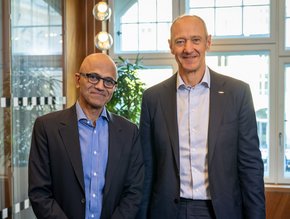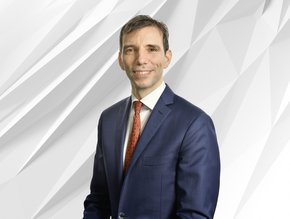Leadership development remains critical to success

There can be little doubt that promoting from within is a crucial contributor to business success.
Embarking on an external recruitment process can not only be costly and time-consuming, but might also pose a greater risk when it comes to finding the right person for the job.
There also exists a school of thought that looking outside the business for suitable candidates, instead of internally, has the potential to damage morale.
That’s not to say promoting existing employees is a straightforward exercise – far from it, in fact. While they may be blessed with an extensive skillset which ensures they stand out from the crowd in their current role, this doesn’t necessarily mean they possess the capabilities required to lead those around them.
What’s more, there is increasing evidence to suggest members of today’s rapidly-evolving workforce, with its altogether different set of priorities compared to yesteryear, are not actually interested in transitioning to positions of leadership.
Recent research from Visier found less than two in five (38%) employees in the US are interested in becoming a manager at their current organisation, with the remainder preferring to stay as ‘individual contributors’.
When broken down by gender, the situation appears even more alarming. Less than half (44%) of men are interested in becoming people managers, and that figure drops to just 32% for women.
Similarly, only 36% of workers are interested in becoming a people manager at a different organisation, indicating it’s not the business that makes a difference, but rather the prospect of the role and associated responsibilities.
Many companies are all too familiar with the skills gap, but now conversation surrounding the ‘leadership gap’ is growing louder. Attention must turn to developing the next generation of leaders and ensuring businesses have the expertise and know-how to navigate turbulent waters in the years ahead.
Leadership development ‘critical’ to success
At MUFG Investor Services, development of leaders and the wider workforce begins with having a positive and supportive company culture.
This is captured by the company’s pledge to be ‘Brilliantly Different’ by committing to employee wellbeing, work-life balance and treating everyone with respect.
As CHRO at MUFG, Sarah Mears’ responsibilities include all things related to people strategy, culture, DE&I and employee communications.
She explains that developing the next generation of leaders is “critical” to achieving success, with a focus on ensuring L&D standards remain high.
“We take a comprehensive approach to crafting and implementing dynamic training and development programmes and opportunities,” says Mears.
“We begin with internships and work with universities to attract the best graduating students, and we also focus on hiring top talent. We provide our employees with bespoke development programmes to support them at every stage of their career.
“The focus of these programmes ranges from developing a growth mindset early in their career to those all-important management and leadership skills as they progress. Coaching forms part of our overall approach to development – we offer it at all levels and encourage a coaching management style throughout the business.”
Ensure leaders can thrive
Leadership potential is not necessarily prioritised by MUFG when recruiting young talent.
Mears insists the most important factor when recruiting anyone is finding the right person for the role.
In addition to the attributes required for a specific role, other things that warrant strong consideration include communication skills, enthusiasm and a willingness to learn.
It goes almost without saying that these happen to also be key ingredients for future leaders.
“Leadership is something that can be taught – there’s no magic or secret sauce,” Mears continues. “It’s about building self-awareness, developing authenticity and creating the right environment for individuals to thrive as leaders.
“Our role as leaders is to ensure we give everyone we employ the best development opportunities we can and, if they are eager and open to it, we guide and support them throughout their career with us.”
Navigating change
Clearly, some skills are non-negotiable for all employees. Leaders must not only meet these requirements, but go that extra mile to set an example to team members and fellow managers.
Mears’ own leadership playbook includes the following skills:
- Self-awareness.
- Strong ability to communicate
- Empathy
- Patience
- Innovative mindset
- Problem-solving mentality
- Ability to deal with an ever-changing environment
She points out that, given the rapid pace of change in financial services and beyond, it’s that ability to guide employees effectively through change that is perhaps the most important asset a leader can have in today’s business environment.
“The most effective leaders also have the ability to foster trusting relationships and strong teams, and to bring out the best in their teams,” Mears goes on.
“They understand that they won’t always be the expert in the room, and they recognise the quietest person or a junior colleague may have the answer that’s needed.”
This attitude is reflected further by leadership development programmes which, these days, have more of an emphasis on coaching and mentorship.
“They’re designed to encourage a leader to exercise empathy and not back away from having the difficult conversations,” Mears adds.
Leadership: A constant learning process
As mentioned, Mears leans towards the belief that leadership skills are learned, as opposed to innate, and believes improvement of these capabilities should always be part of any senior manager’s development focus.
“You’re never done and, not to sound too corny, but it is a journey,” adds Mears.
“There’s no doubt that some people are more naturally adept and comfortable as leaders, but it’s important that even those people continually build upon their inherent skills with experience, self-reflection and development.”
And it’s that experience – including in success and failure – that surely cannot be substituted for anything else from a development perspective.
These failures, says Mears, are what build resilience and openness to different ways of working, helping leaders to identify areas for their own development and growth.
“Leadership skills can and need to be nurtured,” she concludes. “Dedication and a growth mindset will draw out good and even great leaders.”
- Five Minutes With: Björn Dufwenberg, MD at Strat7 AdvisoryLeadership & Strategy
- Building bridges between management and productivityLeadership & Strategy
- How analogous inspiration can solve your strategic deadlockLeadership & Strategy
- Leaders are urgently advocating for AI cyber regulationsLeadership & Strategy






